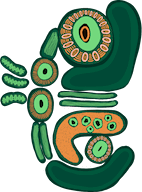
Managing Perimenopause and Menopause symptoms: How your Dentist can provide relief
Perimenopause and Menopause signal a significant change in a woman’s life that can affect not only her body but her mouth, teeth and gums. These transitional phases in a woman’s life, are characterised by fluctuating hormone levels which can give rise to a range of oral health challenges such as dry mouth, sensitive teeth, painful gums, and altered taste are just some of the symptoms. Estrogen, an essential hormone in maintaining oral health, decreases during these periods, leading to potential problems such as:
- Dry Mouth (Xerostomia): Hormonal imbalances can lead to reduced saliva production, resulting in dry mouth. Saliva plays a crucial role in neutralising acids and protecting against cavities.
- Inflamed Gums: Hormonal fluctuations can make your gums more sensitive, prone to inflammation, and susceptible to bleeding. This is often referred to as menopausal gingivostomatitis.
- Altered Taste: Some women may experience a burning sensation or altered taste perception due to hormonal changes.
- Bite Changes: Lower estrogen levels can contribute to bone resorption in the jaw, potentially leading to a change in the bite alignment.
- Bone Density and Tooth Loss: Decreased estrogen levels can affect bone density, including the jawbone that supports the teeth. This can increase the risk of tooth mobility and even tooth loss.
If you are experiencing any of these symptoms you don’t need to suffer, book an appointment with your dentist to discuss the options to manage your symptoms, you don’t need to go it alone. Being proactive about your oral health during this period can also help:
Regular Dental Check-ups: During perimenopause and menopause, regular dental visits become even more vital. A professional check-up and clean can detect issues early and prevent any serious long-term issues.
Oral Hygiene: A consistent oral hygiene routine is essential. Brushing twice a day with a fluoride toothpaste and using floss or interdental brushes can help maintain oral health.
Saliva Stimulation: Staying hydrated and chewing sugar-free gum can stimulate saliva production, alleviating dry mouth symptoms.
Diet and Nutrition: A balanced diet rich in calcium and vitamin D supports bone health and overall oral well-being.
Hormone Replacement Therapy (HRT): For women undergoing HRT, it’s important to discuss potential oral health implications with dental professionals.
The most important thing to remember is you don’t need to suffer from these symptoms. Women’s Health Week is a reminder to take care of yourself and become more proactive about your oral health. Speak to your dentist about how you can alleviate some of your symptoms. Book an appointment today.
